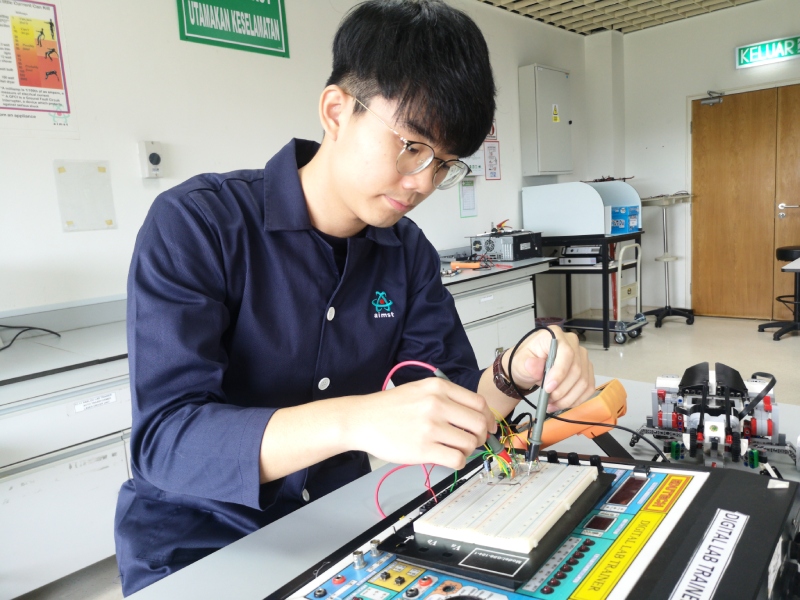Event News
Enrolling for an Electrical & Electronic Engineering Course? You Must Read This!

For students who are good at physics and mathematics and enjoy working with electrical circuits, electrical equipment, or electronic devices, choosing to study electrical & electronic engineering may be ideal for you.
The study of Electrical & Electronic Engineering covers power stations, electric vehicles, computers, communication, and information engineering and even small devices like iPads and mobile phones.
Entry Requirements & Qualifications
You would have to meet the minimum entry criteria set by the respective colleges and universities to pursue a course in Electrical & Electronic Engineering.
Diploma in Electrical & Electronic Engineering
If you are thinking of obtaining a Diploma in Electrical & Electronic Engineering in Malaysia, you need to fulfil the minimum requirements:
SPM / O-Level: You need a minimum of 3 credits, including mathematics and one subject in science (preferably physics), plus a pass in English.
A standard Electrical & Electronic Engineering Diploma is 2.5 years long. To utilise and control electrical energy and design and construct simple electronic devices, you will learn the required engineering concepts and applications.
To run analyses, simulations, and experiments with different computing software such as PSPICE, MATLAB, and C++ programming, you would need to pick up the necessary IT skills.
Upon completing your Diploma in Electrical & Electronic Engineering in Malaysia, you can then opt to enter the field of work to obtain valuable work experience.
Degree in Electrical & Electronic Engineering
To earn a degree in electrical & electronic engineering in Malaysia, after your SPM or an equivalent qualification, you may have to complete a pre-university course, foundation, or diploma program.
The minimum requirements you must fulfil include any of the following:
- A-Level: In Maths and Physics, minimum of 2Es
- STPM: Maths and Physics, a minimum of 2Cs
- Matriculation in Australia: ATAR 60.0 minimum, including Maths and Physics
- Canadian Pre-University: in 6 subjects, including Maths and Physics, an average of 60%
- Diploma: CGPA minimum of 2.00
- Science Foundation: Minimum CGPA of 2.00
You would also have to receive at least a pass in your SPM English in addition to any of the above criteria.

What Courses in Electrical & Electronic Engineering Will You Study?
While it can be theoretical and math-intensive for an Electrical & Electronic Engineering course, you can also expect a reasonable number of hands-on sessions where you may need to get your hands dirty with different electronic tools and appliances.
To gain extra exposure and improve learning, some institutions can also encourage their students to participate in various competitions focusing on robotics, hackathons, circuit, and machine designs.
Here are some standard subjects in an Electrical & Electronic Engineering course that you may study.
- Engineering Mathematics
- Circuits Theory
- Analogue Electronics
- Instrumentation and Process Control
- Digital Signal Processing
- Power Systems
- Communication Systems
- Microprocessor Systems
Why Should You Study Electrical & Electronic Engineering?
With technology growing at such an incredible rate, there are many reasons to study Electrical & Electronic Engineering in Malaysia, from slimmer TVs and lighter laptops to electric cars and unmanned aerial vehicles (UAVs, or commonly called drones).
Here are some reasons why you can choose to take this course if you’re looking for a reason.
- You’re in love with technology
- You have a passion for repairing (electronic) things.
- You are always searching for opportunities to make things easier.

What Skills Are Required For an Electrical & Electronic Engineering Program?
In such a fast-paced and ever-changing area, here are some required personal attributes you will need to succeed.
- Continuous desire to continue to learn and grow
- Ability to work as a team
- Having good logical thinking and problem-solving abilities
What Are The Career Options Available For an Electrical & Electronic Engineering Degree?
In many industries ranging from automotive to biomedical to aerospace to IT, graduates of Electrical & Electronic Engineering in Malaysia can find job opportunities.
You aren’t restricted to work in a field related to engineering; you can also create careers in a wide range of areas, including sales and marketing, consultancy, product development, and much more.
- Technical Support Engineer
- Test Development Engineer
- Network Engineer
- Electrical Process Control Engineer
- Electronics Engineer
- Research & Development Engineer
- Sensor Design Engineer
- System Design Engineer
- IT Consultant
Picking the right course for your future career is an important decision. Do you have more questions regarding Electrical & Electronic Engineering Courses? If you do, please do not hesitate to get in touch with our professional and helpful counsellors for a free course counselling session.

